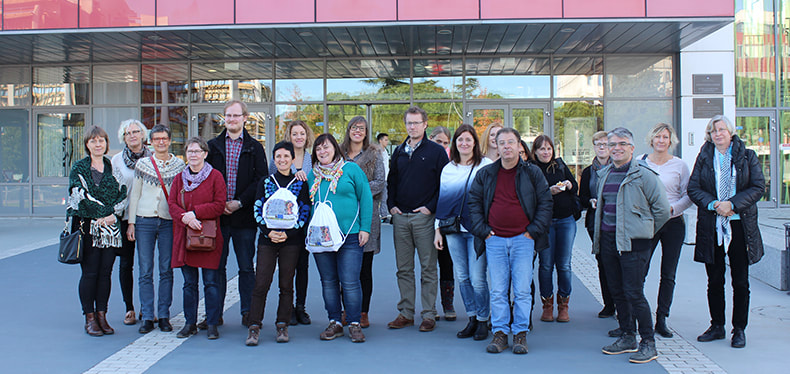|
Fons Trompenaars once said »A fish only discovers its need for water when it is no longer in it. Our own culture is like water for the fish. It sustains us. We live and breathe through it.”
How do you live? How do you see the world? How do you communicate? Are you able to stand back from yourself, your culture and become aware of different cultural values and beliefs? Culture is a part of us. Sometimes we do not even realize that. But importance of cultural differences arise when we have to live, communicate, and interact with people from other cultures. World becomes more and more global, also a lot of people emigrate from one country to another for a variety of complex reasons. Such a move is often necessary and can be quite very challenging, sometimes also traumatic. It is very important that we treat people with such experiences with kindness and respect. Integration is a very important process, especially when we talk about the children and their healthy development. The beginning of November brought us our new Erasmus+ course: Multiculturalism – teacher’s role in the integration process of immigrant children. 21 participants from Sweden, Denmark, Germany, Norway, Spain and Greece spend the week with different trainers, each working in different fields and areas of expertise. Participants exchanged their experiences and opinions and gained new ideas for teaching and integrating immigrant children. Participants discussed the importance of understanding our different cultural backpacks and becoming more aware of different cultural patterns. One of the trainers also emphasized the importance of providing emotional and psychological support to immigrant children in the process of their integration. It is very important that we respond correctly to the needs of immigrant children and provide help and support also to their families. This week we visited one primary and one secondary Slovenian schools that are an example of good practice in the field of integration of immigrant children into Slovenian educational system. Part of the course was devoted also to learning Slovene language and methods for inclusive pedagogy. Participants tried to understand obstacles and benefits of different didactical methods, especially for learning foreign language. As always we haven’t forgotten about more relaxed and fun parts of the mobility experience. Together we explored Ljubljana and visited mysterious Postojna cave and Predjama castle. Participants also had the chance to experience multiculturalism through the culinary world and they haven’t tasted only typical Slovenian dishes. One of the participants described the experience in Slovenia with these words: »Great experience in the Multiculturalism course held in City Hotel in Liublijana. A fantastic opportunity to share our ways of teaching people from different countries and cultures. A challenging way to know how teachers from Sweeden, Norway, Denmark, Greece, Germany and Spain deal with this new situation in schools all over the world nowadays. Learning from one another has been restorative. The organization has been really good. Everything flew as scheduled. Any suggestion or problem we could have with food or whatever was sorted out in a minute. Kindness and respect were the key for success.« At the end we would like to stress out that this was our first session for Multiculturalism course. On one hand we are of course truly happy to receive such positive and encouraging feedback, but on the other hand we would also like to warmly thank participants for their constructive criticism and suggestions how we can improve this course in the future. We look forward to new challenges just as teachers look forward to teaching children how to be more open, tolerant and multicultural. |
primeraWe empower teachers so they can do their job best. Categories
All
LINKSPrimera's practical handbook for writing high quality Erasmus+ mobility projects.
Pan-European Conference on Digital Education Facebook Community. Primera's FB page. Work with us on Erasmus+ KA2 projects: STEP Institute. |
Erasmus+ by Primera for teachersErasmus+ courses by Primera are dedicated to teachers who value evidence-based and practice-driven training in highly interactive international atmosphere.
OID Ljubljana: E10091479 OID Vienna: E10298896 E: [email protected] T: +386 1 320 28 43 Privacy Policy |
Navigation |
Stay tuned! |
© 2020 Skupina Primera Ltd. All rights reserved.



 RSS Feed
RSS Feed